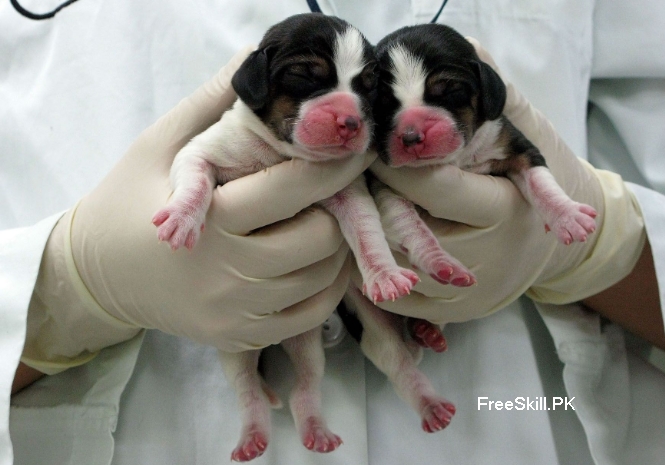“The process of producing multiple individuals with similar characteristics through asexual reproduction is called cloning.”
or
“Production of identical copies of genes of organisms or cells through asexual reproduction.”
Cloning: The process of producing identical copies of genes in cells or organisms. Cloning typically occurs in nature, for example, when cells orbit themselves without any genetic changes or recombination. Bacteria such as prokaryotes (organisms lack a nucleus) produce genetically identical copies of themselves through binary fission or budding. Eukaryotes (an organism with a nucleus) such as humans, all cells that undergo mitosis (such as skin cells and cells of the gastrointestinal tract) are cloned. The only exceptions are gametes (eggs and sperm), which undergo meiosis and genetic recombination.

Cloning Procedure
Scottish scientists cloned a sheep in 1997. Many other mammals have been cloned, such as mice and cows. Two processes are used for this.
Biological Cloning
Remove nuclei from fertilized eggs. Take another nucleus from a fully-grown cell. This nucleus is inserted into the fertilized egg. This transformed zygote is implanted into a suitable uterus, where it completes its development. The newly formed individual is a genetically identical clone of a person using the nucleus. In this way, it can make multiple copies of the desired genotype.
Embryo Cloning
Take a split zygote or early embryo. It is further divided into independent embryos. Each embryo develops a new identical clone. The same twins are born through the same process. The offspring of this type of clone are genetically identical. However, they carry the chromosomes of both parents. This type of clone is used to produce the same cattle and other farm animals.
Cloning Importance
- Humans can use cloning to produce commercial animals, such as horses, sheep, and cattle.
- Some biologists are trying to clone human embryos. It can be used as a donor for organ transplantation. There are many controversies about cloning humans.
- It is used to achieve the goal of eugenics (the purpose of improving human genetic resources).
Advantages
- By this method, new cells of human organs can be produced. Such as skin, cells, liver cells
- The detected cells can be replaced by this process.
- Many hormones can be produced by cloning, such as growth hormones.
- This technique can be used to improve the quality of crops in plants.
Disadvantages
- It can train criminals.
- It is impossible to determine a person’s parent-child relationship, so in some societies it is negative.
See Also:
- RNA: Describe its Structure, Types, & Functions
- Arteries vs Veins: What Are the Main Differences?
- Define Lipids: Describe Its Structure, Examples, Functions